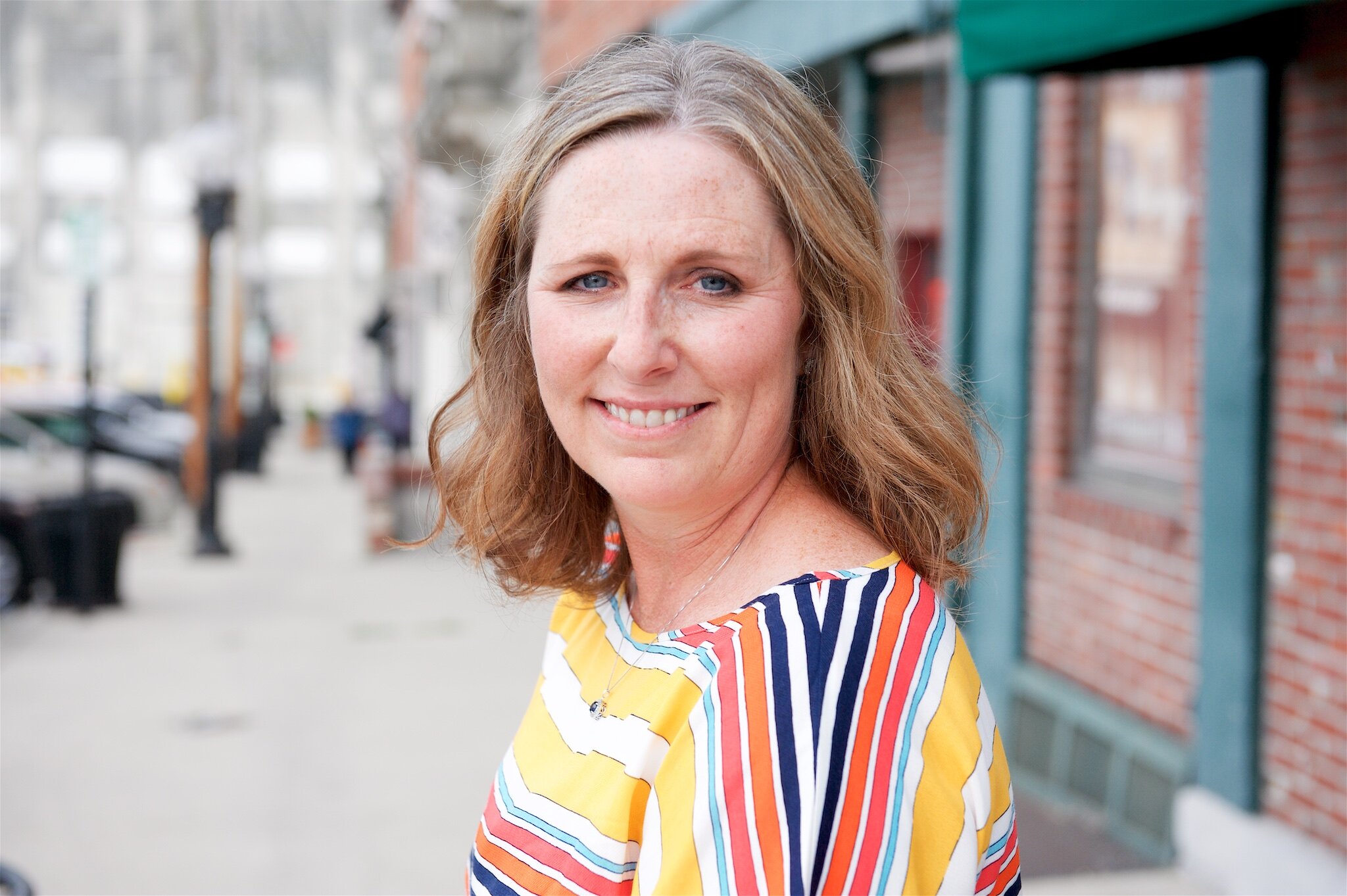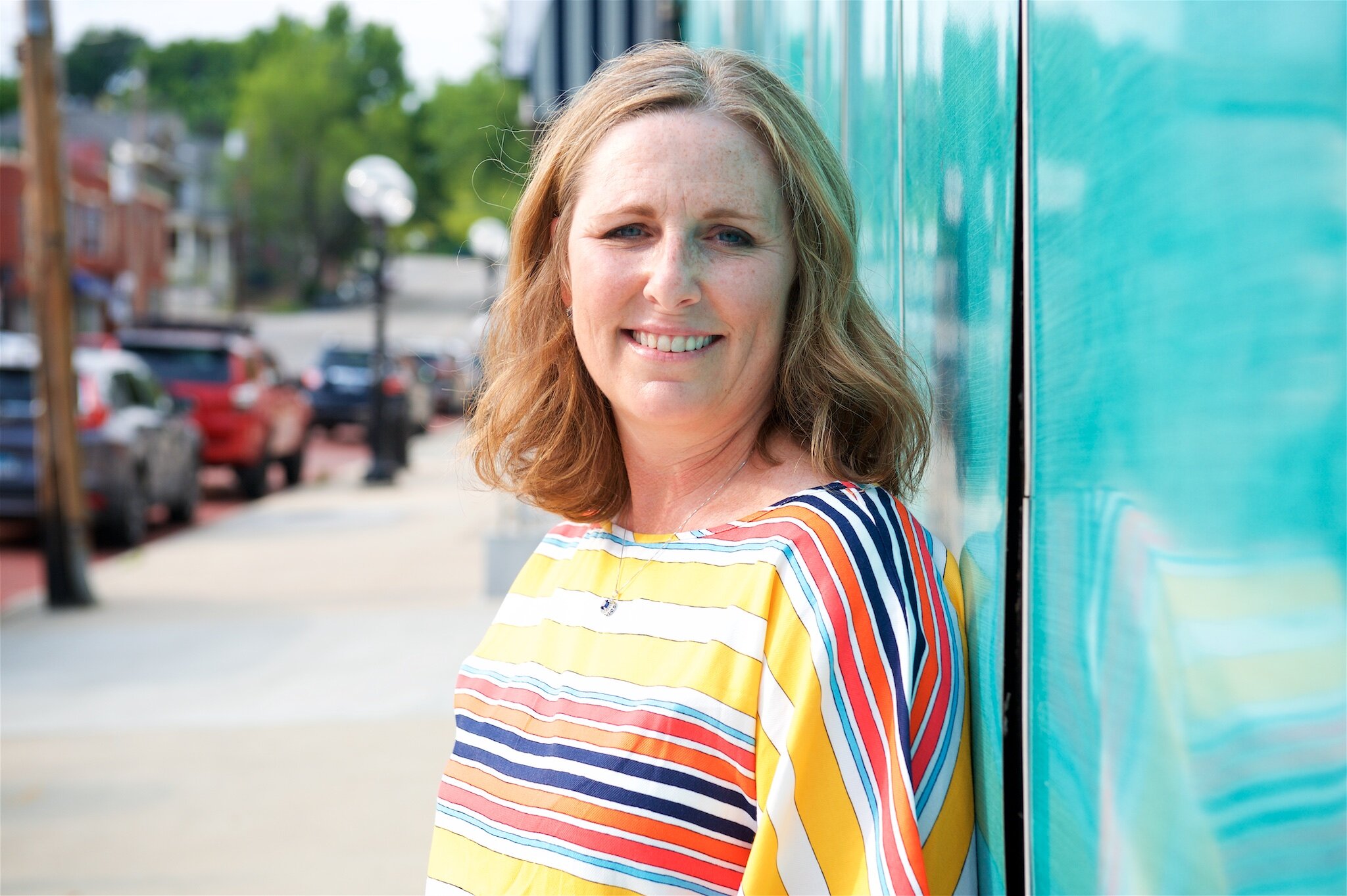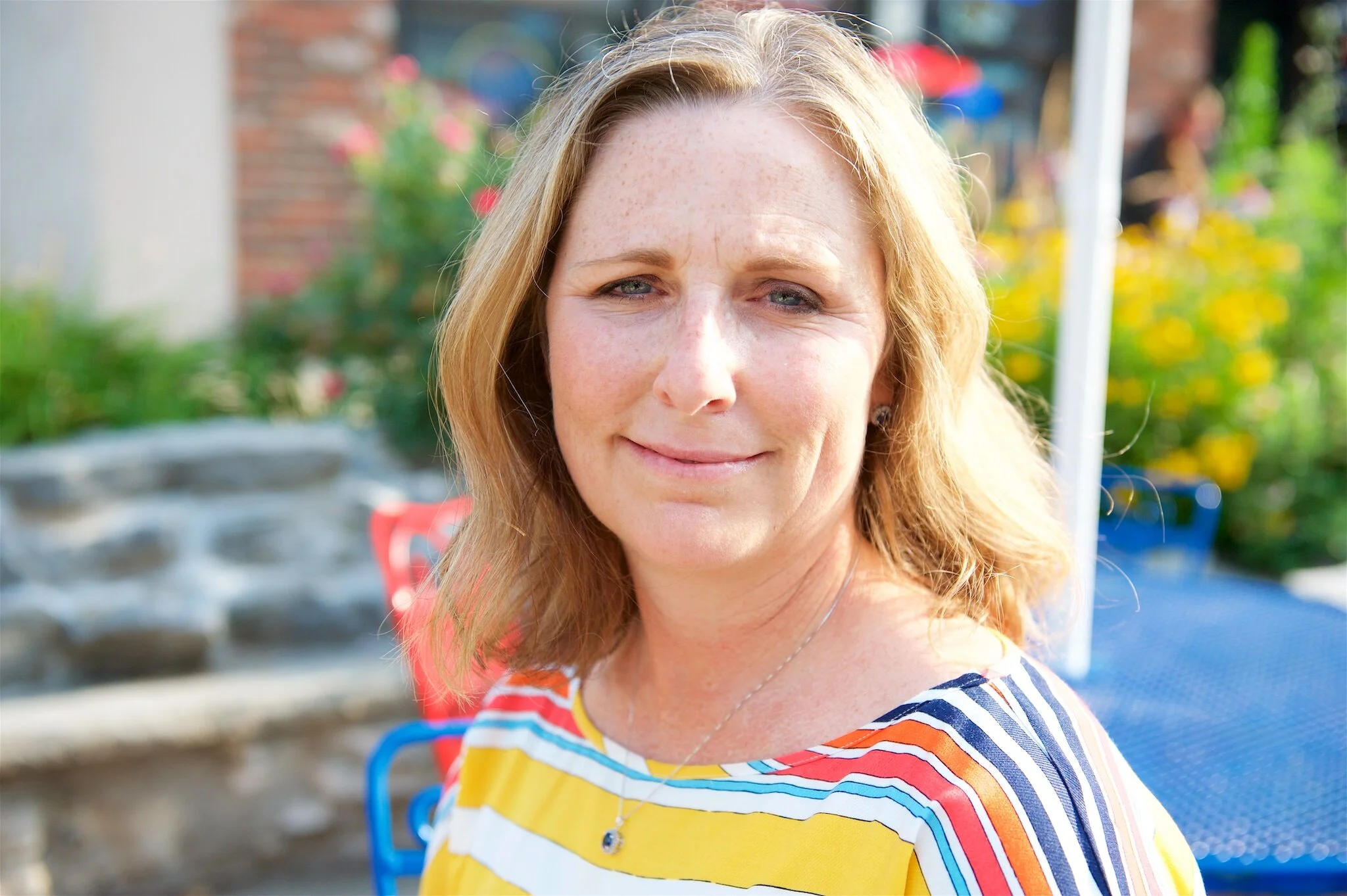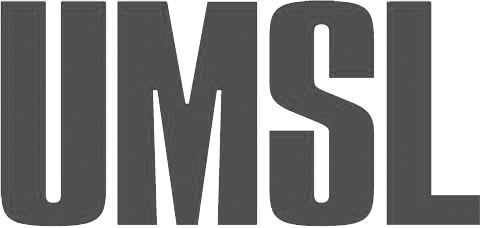Congratulations to Nikki Woelfel, Vice President of Community Development with Carrollton Bank, recipient of our 2021 Award for Transparency and Trust!
The Award for Transparency and Trust recognizes a person, organization, institution, or initiative that:
Works with honesty and openness and isn’t afraid to be vulnerable, especially when things don’t go as planned.
Co-creates work with the people and partners they serve and works to build shared trust so that all at the table feel supported and valued as part of the process.
Embraces mistakes and weaknesses in the open as opportunities to learn and grow.
Humans of St. Louis storyteller Lindy Drew met with Nikki to learn more about her and her work. Here’s some of what Nikki had to say.
Nikki Woelfel, Vice President of Community Development with Carrollton Bank (Humans of St. Louis / Lindy Drew)
Most people don’t come out of the womb or even out of high school or college thinking community development is the work they’re going to do. Oftentimes, they just kind of fall into it. I’ve been in banking since 1999, but I’m not a traditional banker. I worked in marketing for an institution years ago that did a lot of community outreach and investment. When it was purchased, I didn’t know if I’d be able to have the same impact I was having. Then in the luckiest turn of events, Carrollton Bank reached out to me. They have this community feel and giving back is folded into the fabric of who they are — not just the bank but the people they hire. Having the autonomy to work in that space has been an honor. Like you hear from community development workers, it all began for me by happenstance.
Over the years, I was lucky to learn about the Community Reinvestment Act (CRA), a regulation that’s been around since the ’70s, and how banks must adhere to its principles. So every day I get to look for opportunities to influence people’s lives and make opportunities available for them for wealth building, affordable housing, and livable wage jobs. We try to elevate their lives with opportunities that maybe haven’t been there before. And we partner with quality organizations also doing those things well to bring more opportunities to people.
What’s one of the most memorable stories for why you continue to do the work you do?
One part of doing the work I do that’s the most emotionally meaningful is teaching financial education classes. Prior to the pandemic, I was teaching a class weekly. The thing about it that strikes me so much is that this information is not required learning. People aren’t forced to know this stuff. But mistakes you can make from not having this knowledge can follow you for so many years if not a lifetime. And I bring my personal experiences to class to share how I’ve made a lot of the financial mistakes that I teach about.
I’ve racked up credit card debt. I’ve had an extensive student loan balance. Working for a bank, you learn the tricks of the trade though. So I started learning even more about what it means to have financial wellness and about how your credit and credit score can impact your day-to-day living. That was impactful because it was something I had to go through the trenches about on my own to teach myself.
I remember teaching a class to high school students about student loan debt and trying to educate them on the magnitude of what that means. I said, “You’re going to remember that Nikki Woelfel spoke to you your senior year of high school. And you’re going to remember this conversation when you’re 30 years old and potentially paying back student loan debt.” So everything they learn in that moment might not be pertinent to their lives today, but they walk away with that knowledge, they’re going to keep that forever, and no one can take that away from them.
I was born and raised in Illinois, so I feel like I have the credibility there. Still, it’s never easy because you always have to show up. You always have to be honest and trustworthy. I had a harder time building that trust in Missouri because I was teaching financial classes at night and then driving back to Illinois to my suburban lifestyle. So I try to always show up, be present, and make that a priority. Showing up and being there is the first step.
I was teaching a financial education class talking about credit. And when you do these classes, especially online, the video isn’t always on, so you don’t know if the participants are engaged. About three weeks later, I got an email from one of the participants who said, “Okay, here’s the situation. Here’s how much credit card debt I have. Here’s the balance.” She’s laying out the scenario to me and I was like, “I’m so glad you reached out. This is totally something I can help you with! These are your options.” I walked away from that thinking, “It’s so hard to know sometimes, but people really are listening.” So when she reached out, it was amazing. I knew she had kids because I had seen them in the background. And I just thought, “She’s making a difference in their lives and for their futures too.”
I grew up in a family that didn’t have a lot of money. I didn’t wear designer jeans or have any of those things. So when I went off to college, I had stars in my eyes with those tables at orientation where you could apply for your first credit card. I had VISA cards and a card for American Eagle. And I walked away from college with not just student loan debt but credit card debt. I made those mistakes. I mean, I was a month shy of 18 when I started college. At freshman orientation, how in the world I was able to commit to the amount of student loan debt that I was going to be saddled with? I don’t even know how that’s legal at 17. I had no idea what that was going to mean for me at 21 and then beyond. That’s why when I teach financial education classes, I try to impart on people that the decisions you make early on when credit is available to you can have an impact for years to come, so let’s think logically and wisely about it.
How have you helped people obtain Payment Protection Program (PPP) loans during the pandemic?
PPP has been critical for people during the pandemic. When it rolled out, our bank took it very seriously. Because we’re a community bank, our relationships with customers are personal and one on one. So our relationship managers were working with people on how to fill out the applications and it was really labor-intensive. We heard early how minority-owned and small businesses were having a hard time connecting to PPP lenders. We on the community development side asked, “What can we do?”
We started reaching out to partners and some movers and shakers to connect us with people having those challenges so we could help. During the second round of funding, we worked with business districts to get the word out that we can help with some of the one-on-one applications. What was happening was that folks were filling out information through portals and they didn’t have access to a person to tell them if they made any mistakes. Even I took a couple of applications, and I didn’t know what I was doing in the beginning, but I did my best to try. We set up a hub with a quality control team who knew the ins and outs of the application. I reached out to clients to get their paperwork in order. And on the back end I was always asking our team, “What do I do with this? How do I fill this out?”
I was emailing back and forth, day and night, with this one restaurant. Obviously, restaurants were so hard hit. Eventually, I got to hand-deliver their check. I’ve never been a loan officer, but what a great feeling to know I could help this establishment that needed access to capital. We even emailed to discuss the PPP loan forgiveness piece and the owner was so appreciative. Banks are typically transactional in nature. As a community bank, relationships have to be front and center. That’s what we’re meant to do. The pandemic really shined a spotlight on that.
During the beginning of COVID, we realized small businesses had typically been moving along with transactional relationships with their financial institutions. That probably served them well to an extent because of the nature of their businesses. But when it came time to needing that relationship, not all businesses had that. I’m the chairperson of the Metropolitan Saint Louis CRA Association and we took the pandemic as an opportunity to say, “We need to transition to create programs designed to help educate small businesses on things to keep in mind.” It’s easy to get bogged down with the day-to-day with your business. But sometimes you’re going to need your banker or a relationship with somebody to help you with things like going over your budget and answering questions about the way your business is running.
What was your biggest personal change during the pandemic and how were you able to do your job well?
On March 4th, 2020, about nine days before everything started shutting down, my husband and I brought a foster child home from the hospital. She was 13 days old. I worked on March 3rd, and that was going to be my last day for two months. That was a Wednesday, and that following Friday everyone was working from home and not in the office. I was going to figure out a way to work from home a bit, but then everybody was working from home. It was easier because I didn’t have to miss meetings and I could join in between feedings and all that. It was challenging, but because daycares weren’t open and she was too young to even be in a daycare, we made it work. COVID created a challenge, but it also created an amazing chance for me to have more flexibility and time for our foster daughter.
It’s not lost on me that people have had struggles over the past year. It’s very apparent in the work I’m doing. But, surprisingly, we’ve been able to get things accomplished over this time. I thought it would be natural to hit the pause button on community development because there were so many other emergent needs. I thought we’d need to slow down big projects to focus on food and housing and shelter. And we didn’t do that. There was a lull for a couple of months because I was spending so much time with the baby. But by the time I plugged back in, I was on calls all week.
My colleagues were saying, “So many communities have waited forever for help. They’ve waited forever for investment. They’ve waited forever for assistance and for affordable housing. We can’t take a break because of the pandemic. They’ve waited long enough. Let’s keep working.” So we did. There’s always going to be something. Maybe not a global pandemic. But there’s always going to be someone that says, “Slow down. Maybe it’s not the right time.” People have been hearing that for too long. So let’s keep going.
How do you grapple with working with community partners and have the wherewithal to collaborate in an impactful way?
Sometimes banks can be seen as adversaries. But since the housing crisis of 2008, the banking industry has asked itself, “What can we do to make change?” There are limitations banks have, but opportunities to learn have also been created. We started showing up, and I include myself in that ‘we.’ I started listening to people’s needs. One thing that’s a strength of mine is that I never view a problem as insurmountable. I think there’s always a solution. It’s challenging and we’re one of the most regulated industries in the world. So there are times when there are things we just can’t do. It’s not because we don’t want to, but we can’t. So I always think about how we can figure out ways around it or create solutions to the problem. And there are a lot of systemic challenges we’re all trying to solve in community development.
What’s an example of when you had to be transparent in your work and it worked to your benefit?
I’m part of the group that put together the Gateway Neighborhood Fund. We looked at disinvestment and blight and decay of properties in North St. Louis City and County, and a lot of it ties back to the appraisal gap. And to get a mortgage you have to get an appraisal on a property and it has to appraise for an amount equal to or more than the sales price. So when there’s a gap, mortgages can’t happen due to regulatory limitations. This is an ongoing problem.
Well, an organization from Detroit talked about a product they created back in 2017. We listened intently and their solution was ingenious. The Federal Reserve Bank of St. Louis reached out to the Metropolitan Saint Louis CRA Association asking if anything could be done here in St. Louis. Several bankers got together to research and I reached out to St. Louis Equal Housing and Community Reinvestment Alliance (SLEHCRA) and Metropolitan St Louis Equal Housing and Opportunity Council (EHOC). They had been talking about the same thing. I said, “Let’s get together.” So we started having a conversion. It took a long time to button everything up but, over the past three years, we’ve been building this program.
There have been times when community members have said, “We need this,” and banks would say, “Our regulators won’t let us do that.” It would have been easy to get bogged down in what was needed versus what couldn’t be done because when those things can’t marry, it slows everything down to a halt. But we kept coming back to the table to figure out how we could get around it and solve the challenge to get everyone back on track. And that created a great deal of transparency that ultimately led to trust.
So many talk about the American Dream, and if you’re someone who hasn’t been able to take advantage of that, that can cut to the core. The Dream is homeownership. But there are a lot of people who feel like that’s not an opportunity open to them. We’re working towards a wealth-building American Dream opportunity. I think about that since I came from a less affluent background. But I also think about how my grandparents and great-grandparents owned their homes. Many people can’t say that. That first generation of homeownership for some might begin with the folks we’re helping by starting that process for them now. We can be sad that that started in 2021, or we can be overjoyed that we’ve worked to get here.
Where did you learn to hone that skill of having and developing trust?
It is intentional, but it’s also second nature for me. I don’t have a filter sometimes. I’m someone who’s okay with stopping the conversation to say, “Wait, these are not insurmountable challenges. Let’s talk about this.” With a curious inquisitive mind, I’m not afraid to ask questions. Why does something have to be no? Or, black or white? Isn’t there room in the middle?
When’s a time you had to trust someone to move your work forward?
Sheri Flanigan-Vazquez is an incredible leader at Justine Petersen. She’s super honest, transparent, and trustworthy. But one of the things she has a unique ability to do, which I am not great at and am still learning, is that she doesn’t get emotionally overwhelmed by a problem. I can come into a meeting knowing the challenges we have to solve for and she’s taught me that no matter what the challenges, we can solve for it. And she does it in such a calm and practical way. Peter Hoffman says she’s like a human salt lamp. She can just bring the tension down. I think I’m a little too high-strung to do it the way she does it, but I just love being in a room with her. If I ever experience a problem related to this work, she’s the first person I call.
What’s something you know now about community building that you didn’t when you were younger?
You can’t do it all. Community building means so much. The definition is so broad. It’s important to remember to stay in your lane and focus on things you can have an impact on through your expertise. Don’t get distracted by the things you can’t control. I’ve learned, although I haven’t always embraced it, that change is slow. I follow politics as a frustrating side hobby, and change doesn’t happen overnight. I keep in mind that you can’t just abandon places. Places are going to exist whether you invest in them or not, so why not invest in them? And I’ve also learned that we can too easily let the noise get in, especially local noise, so I try to not get bogged down by the noise of the news. Like, “Oh my gosh, there is so much violence and crime,” and the 30,000-foot belief is that communities are just that way. But we’re talking about people who have lives there. I remember at another job, someone told me, “You’re sending me into this neighborhood, but is it safe for me to go there and do a credit fair?” I said, “You’re probably gonna pass kids waiting for the school bus. It’s going to be 8 a.m. This is where families are raising their kids. Remember that.”
We all have common challenges. They might not all look the same, but there are common themes. That’s what I keep at the front of my mind. My husband is a police officer. He sees some of the worst of society and situations every day. It’s so easy to let that noise in, but you have to step back to see individuals. It’s been a tense seven years for us since Ferguson. There have been times where our conversations have been a little combative. It can happen. We learn a lot from each other from that too. It’s easy for him to view communities at a high level thinking they’re full of drugs and crime and bad actors. So I always try to say, “There are families there — folks getting up every day and sending their kids to school. Those families deserve to have flourishing lives like everybody else.”
- Nikki Woelfel, Vice President of Community Development with Carrollton Bank
We hope you can join us to celebrate community builders like Nikki at our Community Development Family Reunion event on September 23!
Photostory by Humans of St. Louis and Lindy Drew. Photostory narratives represent the opinions of the speaker(s) featured only and do not necessarily represent the views of the Community Builders Network of Metro St. Louis.




















